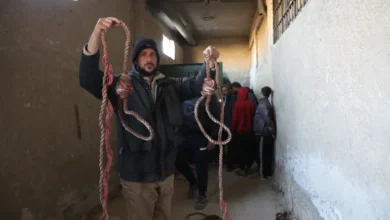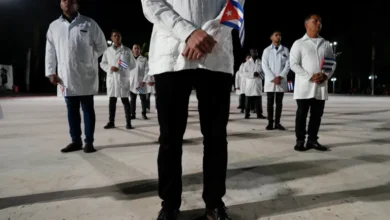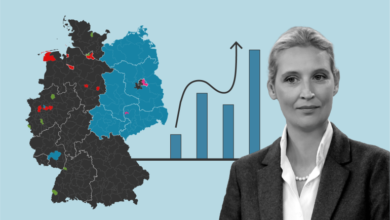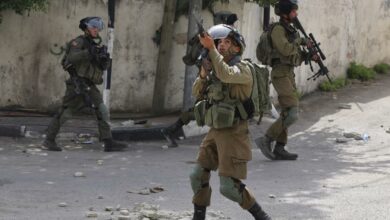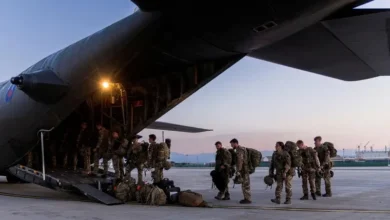Did Israel achieve its goals in Jenin?
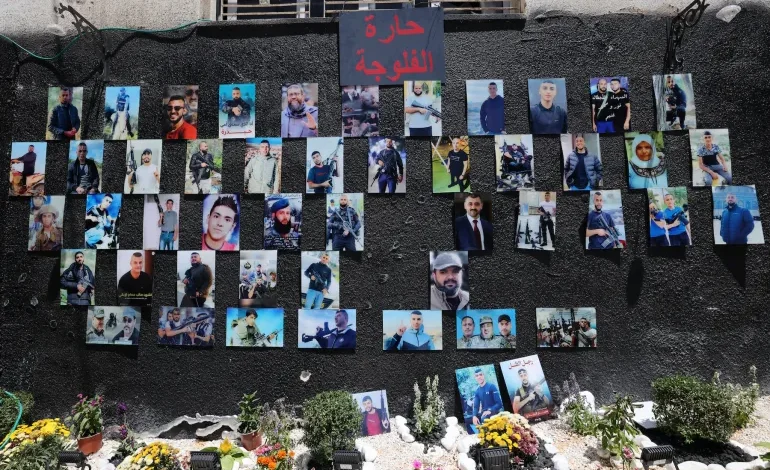
For two days, the Israeli army used its military might to hit Jenin refugee camp in the northern West Bank. The scene was reminiscent of Israel’s large-scale invasion of the West Bank in 2002: Smoke plumed from buildings destroyed by Israeli weaponry, tyres set aflame by young men sent toxic fumes into the air, drones hummed overhead and the sirens of ambulances wailed as Israeli forces obstructed them from transporting the wounded to hospitals.
At least 12 Palestinians were killed, four of them children, in a ground and aerial offensive carried out by hundreds of soldiers. Bulldozers wreaked havoc on the dilapidated refugee camp, which covers less than half a square kilometre (0.2 square miles) but houses some 23,600 people.
Its army vowed to come back, describing the refugee camp, one of Palestine’s oldest, as a hub for what it called “terrorism”. But for Palestinians, the Jenin refugee camp has become a symbol of resistance, with many of its young men taking up arms to defend the community and to carry out operations against Israeli soldiers and rampaging settlers who have been carrying out pogroms across the West Bank.
And according to experts and observers, early evidence suggests the siege might only embolden the resistance.
“Such deployment of brutal force is also a short-term attempt to show who is in charge and who holds the power, to deter armed resistance against the occupation,” said Ines Abdel Razek, executive director of the Palestine Institute for Public Diplomacy. “But history shows us it will actually get Palestinians even more determined.”
The resistance
Some of the armed men in the camp are affiliated with the Al-Aqsa Martyrs’ Brigades of Fatah, the political party of Palestinian President Mahmoud Abbas. Others are part of the Jenin Brigades – also known as the Jenin Battalion – and are either connected with some of the various traditional factions in Palestinian politics or are autonomous.For years, Jenin has been a sore spot for Israel, which has not managed to crush the tides of resistance despite many efforts.
But observers say that Israel has failed to achieve its mission in Jenin, which is to root out the fighters completely. “Israel failed to achieve the military and political objectives it set out for its invasion of Jenin. The resistance groups remain, and have been strengthened as the refugee camp and the entire country has rallied behind them,” said Salem Barahmeh, a Palestinian activist.
At the same time, the Palestinian Authority (PA) – which to many Palestinians acts as a proxy for Israel – has lost its capability to re-establish its writ in the area. “The fierce resistance by the Jenin Brigades” contrasts with the “PA’s failure to protect its own people against a massacre”, said Barahmeh. The PA’s declaration that it was ending security coordination with Israel was also later disputed by the Israeli government. “People are under no illusion that the PA is an extension of the Israeli occupation,” Barahmeh said.
What Israel did accomplish
Yet Israel did achieve some of what it likely set out to do, said analysts. It destroyed large parts of the camp’s infrastructure, and with it, crippled the United Nations Palestinian refugee agency’s ability to rebuild.“Because they couldn’t secure a clear ‘win’, they completely destroyed the infrastructure of the camp and they terrorised an entire generation of refugees who are already traumatised,” said Diana Buttu, an analyst and former legal advisor to the Palestinian negotiating team.
“UNRWA [UN Refugee Agency] is already cash strapped and so what they did was destroy the camp where people are going to be scrambling to rebuild it.”
Jenin has long been a thorn in Israel’s side. In 2002, its forces killed 52 Palestinians and destroyed large parts of the camp in an 11-day operation. Twenty-three of its own soldiers were killed too.
Twenty years later, it returned with a vengeance following a series of attacks inside Israel by gunmen from the camp. Raids by Israeli forces became the norm, as did attempts to kill or arrest members of the Jenin Brigades. But because many of its members were not part of the traditional Palestinian factions, it was difficult for Israel to eradicate them.





